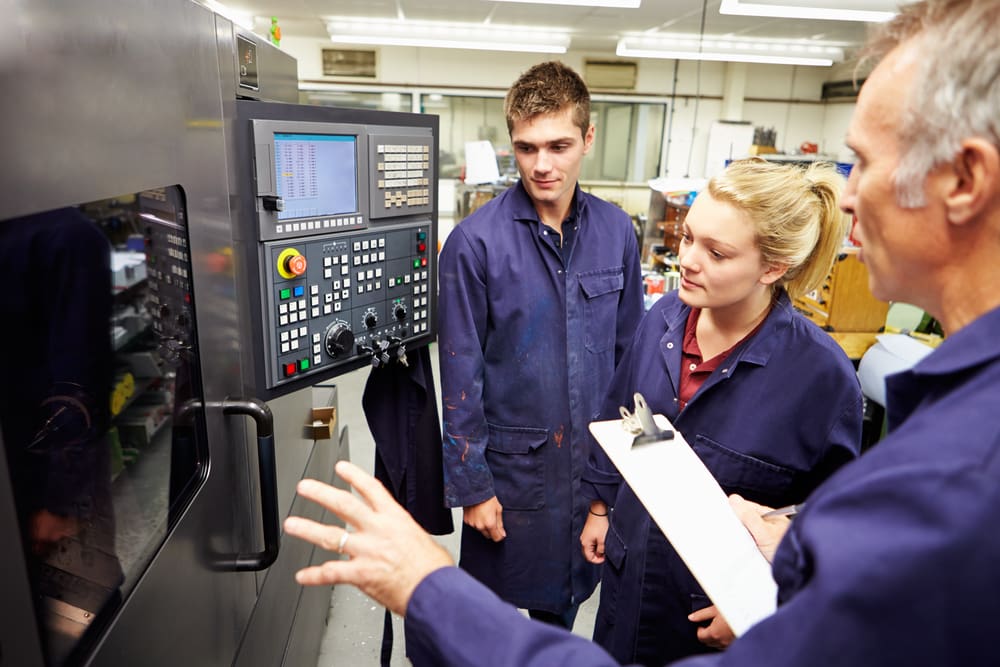Juneau, Wisconsin facility expands and is hiring to support growing demand AUBURN HILLS, Mich.—July 15,…

Manufacturing Offers Solid Career Opportunities
There’s a sign in Erik Anderson’s office that reads: Go figure it out.
It’s a mantra that fits well with his role as president of Basin Precision Machining in Jefferson. The company, a precision CNC contract machine shop specializing in machined components and assemblies, is poised for expansion and rapid growth. Construction is currently underway, in fact, at Basin’s Jefferson facility to add nearly 23,000 square feet and $9 million in new equipment.
The growing worker shorter poses significant challenges for manufacturers in our area, and around the country. A recent survey conducted by Wisconsin Manufacturers & Commerce, the state’s largest business group, found 77 percent of respondents had difficulty finding workers, up from 53 percent two years ago. The challenge is a familiar one for Basin.
The challenge of being able to hire enough workers has a significant impact, with Anderson noting that the company’s five-year strategic plan is centered around workforce challenges. An increasingly tight labor market and growth opportunities are forcing Basin and many others to turn to automation to meet demand.
Anderson, who has 35 years of experience in the precision machining industry as a journeyman machinist, quality assurance manager, Six Sigma Black Belt, operations manager and now president, is an enthusiastic advocate for manufacturing. It’s a career, he notes, that has been very good for him, and one he’ll retire from.
He supports efforts to create career-based outcomes, noting that the state mandate requiring Wisconsin public school students enrolled in grades six through 12 to participate in Academic and Career Planning (ACP) is a good first step. The ACP program is an effort to shorten the workforce pipeline and address a looming crisis in the state – a lack of workers to fill available job openings.
“We don’t spend enough time exposing kids to different career paths,” he says. “We need to fix the way we get young people ready for the workforce by exposing them to different career paths and we need to attract more people to the state. Wisconsin needs to do a better job of marketing itself.”
The Wisconsin Taxpayers Alliance’s recently released report lays out the challenges. The state’s working-age population is expected to decline between 2010 and 2040, while the number of seniors will nearly double. Employers like Basin are taking steps to reach out to future workers to promote manufacturing as an attractive career choice, one that offers stability and opportunity.
Manufacturing also offers financial security.
“You can graduate from high school and in two years be making $50,000 a year if you apply yourself in manufacturing,” notes Anderson.
According to the Bureau of Labor Statistics, in 2015, the average manufacturing worker in the United States earned $81,289 annually, including pay and benefits.
Manufacturing as a career offers lifelong training and education, and often comes without the price tag of a four-year college degree. Though the industry employs workers of all education and skill levels, it employs a higher share of workers without a college degree than does the economy overall, with multiple paths to success. While some jobs in the industry require a college degree, others provide on-the-job training or apprenticeships for students coming out of high school or with some technical education.
October is Manufacturing Month. Throughout the month, the Glacial Heritage Development Partnership will be sharing information about manufacturing as a career, as well as its importance to our local, state and national economy.
